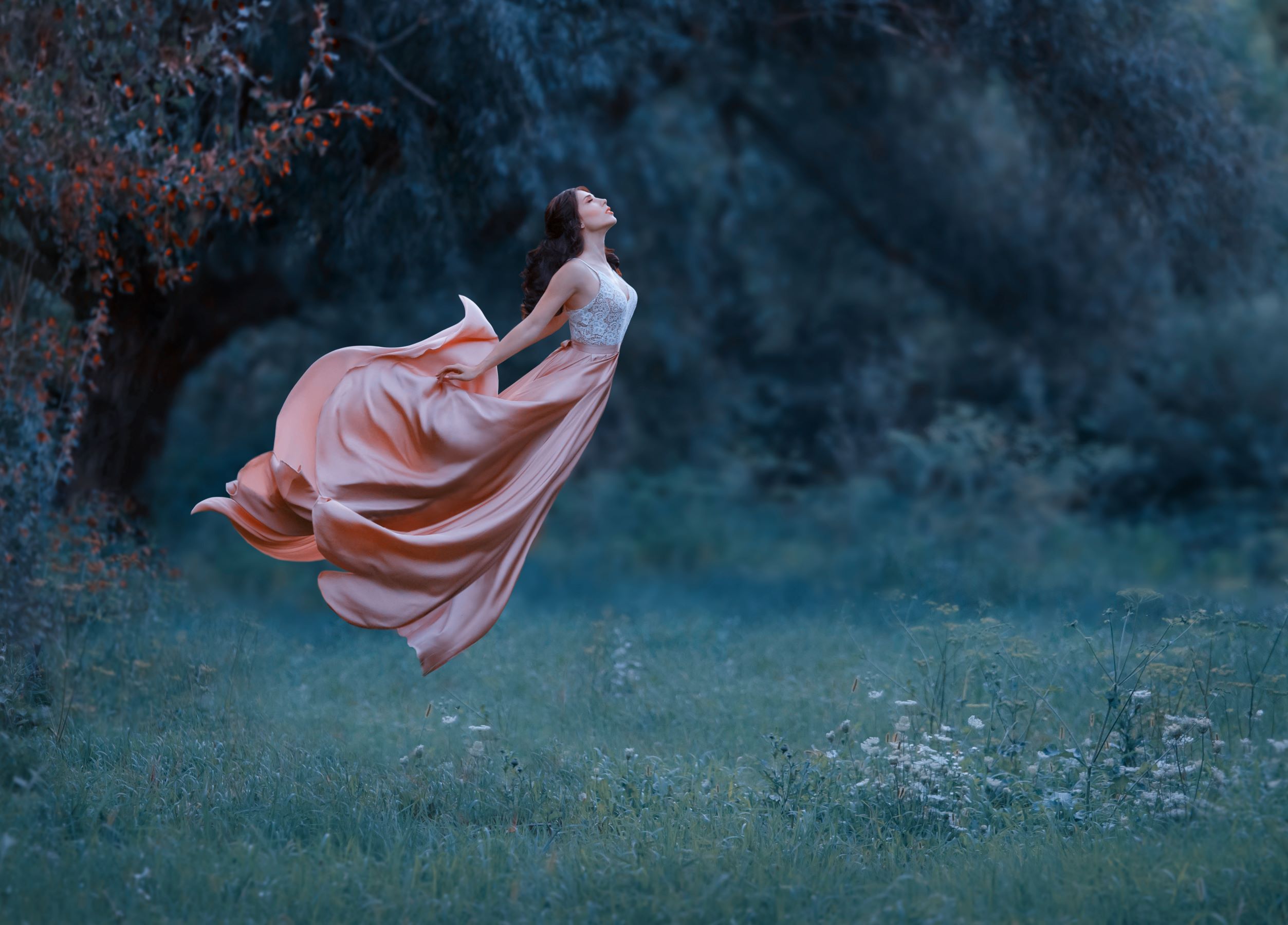
(Shutterstock)
Plunking my bundled-up self on a bench, I wait, shivering, for the Great Blue Heron. Lost in reverie at the edge of an icy lake, he stands so still, he could be a statue. I want him to take off, surprise me yet again as those shaggy wings unfold from his hollow-boned, Giacometti-skinny six-pound body and reach across the sky with that seven-foot wingspan that catches my breath every time.
As I wait, a plane, rare in our part of the world, flies overhead. I take my eyes off the heron long enough to follow its path out of sight, a little jealous. Then a flock of Canada geese comes in for a not quite graceful landing, lining up across the middle of the lake to rest and gossip. That is all the inducement the heron needs to push off, skinny legs trailing behind him as he soars away from all the squawks and scandal.
I leave happy. Some hours later, I crawl into bed, squeeze my eyes shut, and will a dream that will not come, has never come, not once in my entire remembered life.
I want to fly.
My husband had flying dreams all the time as a kid. So did director James Cameron, who credits such dreams for his creativity. Next to sex, flying is the favorite quest of lucid dreamers, and probably has been since the start of time. “Oh, that I had the wings of a dove,” yearns the writer of Psalm 55. Roc Morin, a filmmaker who worked as a war correspondent, then taught college psychology courses, gathered up the dreams of people all over the world as he traveled. “The first thing I learned is: Everybody flies,” he wrote in The Atlantic. “Consider the surly taxi driver I met in Ukraine who, when asked what he dreamed of at night, responded, “‘I jump and then I fly—higher than the trees, higher than the trolley wires.’”
The taxi driver interpreted his nocturnal flights as foreshadowing the afterlife, but there are other possibilities. Pleasantdreams.com lists more variations than I could have dreamed up: flying like a bird, flying through the sky, flying with butterflies or eagles, flying while still snuggled in your bed, flying while riding a camel or an elephant, flying in outer space, flying hand in hand with your lover. Most often, the dreams are said to conjure a sense of freedom, joy, euphoria; to mean you are a free spirit or you are rising above problems and obstacles, escaping a burden, living your life to the fullest.
Fair enough; we still cannot agree on why we dream or what our dreams mean. A mind amusing itself with the leftover bits of the day, spinning them into far more colorful configurations than we managed? A message from the collective unconscious? A way to get rid of stuff we need not store long-term?
All I know is that a good dream feels like a gift, something wildly creative and fun that my brain whipped up just for me. A bad dream can leave me shaken for days. Surely there would be a more banal and practical way to jettison unneeded memories?
Whatever the mechanism, I still want to fly. In a calm sky, though—no lightning—and soaring effortlessly, above scenery so gorgeous that any drone would envy me, before gliding to a gentle stop. I have learned to spell this out, because pleasantdreams.com also notes that flying dreams can also suggest feelings of instability, a desperate need to escape, or pure hubris. Dreaming of broken wings can be cruel; dreaming of dragon wings, as the makers of Game of Thrones well know, “conjures up images of enormous strength, ferocity, and power.” And dreaming of chicken wings indicates bottled-up rage (says the site, which mixes Googled wisdom, folklore, fortune-cookie prophecy, superstition, pop psychology, and blithe New Age fuzz).
Worst of all would be to dream of flying and then, mid-dream, crash down to earth. We all remember Icarus. Was it hubris that got the best of him, or the desperation of his need to escape?
Escapes, like addictions, can be dangerous. Even when they work, they often add new problems. And stealing an ability you do not possess is like going to a ball in borrowed finery; such evenings rarely end well. Maybe I should focus on being grounded and learn to be grateful for gravity? But that seems unnecessarily priggish. All I want to do is dream, not actually fly. (Although I do keep an eye on that jet-packed vest technology.)
Mine is a waking dream, the sort that either inspires us to work toward what we envision or offers a poor substitute for what we really want and cannot have. I want to feel carefree, so I will settle for a few drowsy minutes of soaring. What would it mean to use my dream-of-a-dream to inspire myself, instead?
In the world of metaphor, flying just means breaking free of gravity’s pull, shaking off restrictions, soaring under our own power, reaching new heights. Live right, and you are already flying. But could I manage a life that dramatic? Easier to reserve such charged metaphors for the dream world, where the flying looks effortless, and I can forget the GPS-tagged Great Blue Heron who managed a 1,424-mile marathon flight over open ocean, reaching 67 miles per hour at her fastest speed. That trip could not have been easy. Did she doze, exhausted, in midair? Birds do have REM sleep, but we do not yet know if they dream.
If they do, they probably conjure a warm bed or overstuffed armchair where they could relax and stay put.
Read more by Jeannette Cooperman here.
